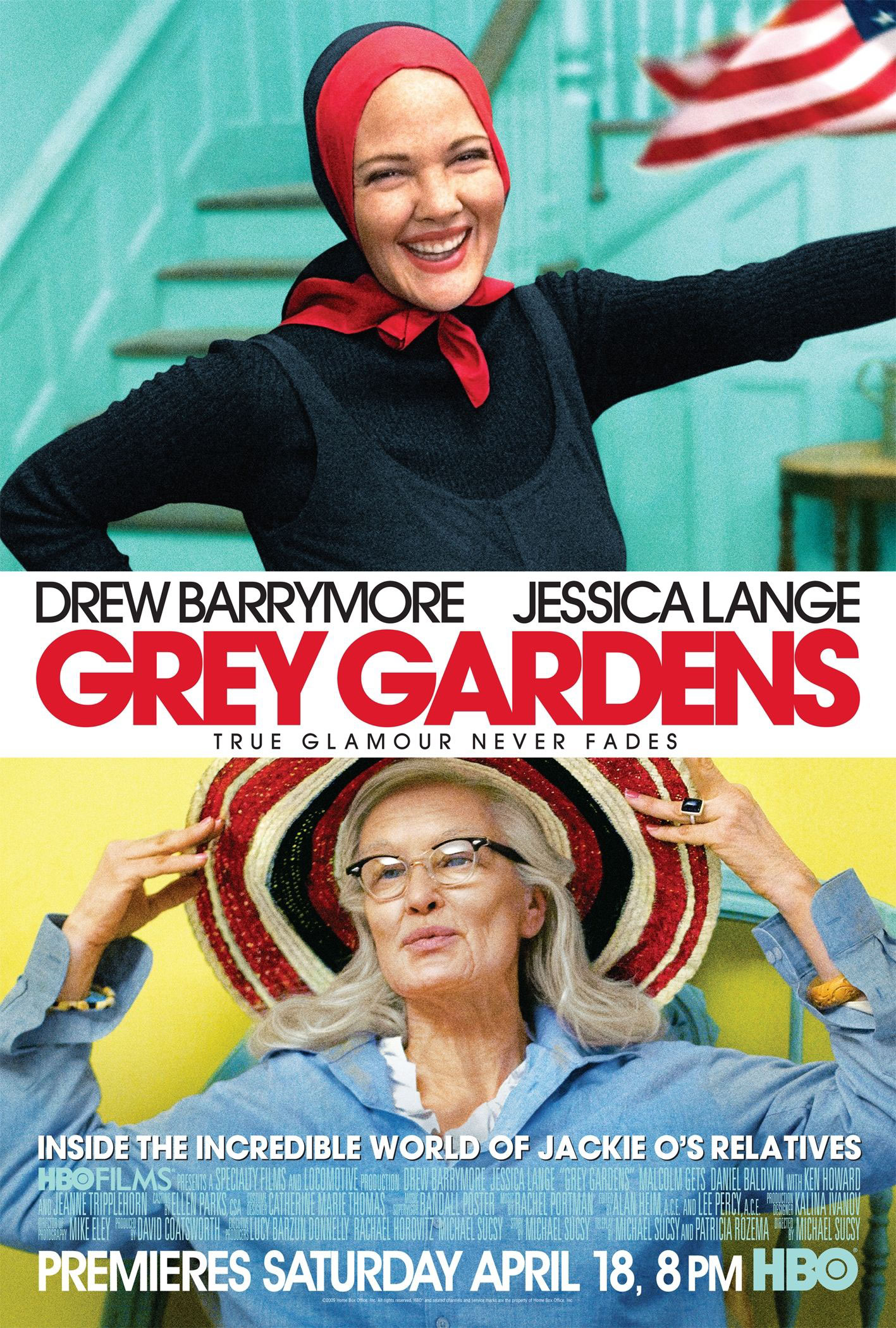Manuel is working his way through all the LGBT-themed HBO productions.
 Last week we looked at Outrage, the Kirby Dick documentary on outing U.S. politicians. It’s a fascinating, well-researched doc that, as many of you noted, is all the more groundbreaking for the way it revealed media biases when it came to reviewing the film (NPR famously refused to discuss the documentary’s subjects citing the rights to privacy of the politicians involved). This week, we’re talking about a staunchly camp classic that got the HBO prestige treatment and gave us perhaps the best Drew Barrymore performance to date, one which made great use of her charm and comedic timing shaded with some of the dramatic depth she so rarely gets to show off.
Last week we looked at Outrage, the Kirby Dick documentary on outing U.S. politicians. It’s a fascinating, well-researched doc that, as many of you noted, is all the more groundbreaking for the way it revealed media biases when it came to reviewing the film (NPR famously refused to discuss the documentary’s subjects citing the rights to privacy of the politicians involved). This week, we’re talking about a staunchly camp classic that got the HBO prestige treatment and gave us perhaps the best Drew Barrymore performance to date, one which made great use of her charm and comedic timing shaded with some of the dramatic depth she so rarely gets to show off.
“Inside the incredible world of Jackie O’s relatives.”
Thus reads the film’s tag-line and that, one has to admit, is one way of selling the film. The other, of course, is “Inside the incredible world of one of the greatest documentary subjects ever committed to film.”
Albert and DavidMaysles’ iconic 1975 Grey Gardens documentary, which chronicled the lives of Big and Little Edie Bouvier, is required viewing and much of that is thanks to his subjects. (Funnily enough, we just discussed it in our TV at the Movies series). Jackie O’s cousins are the epitome of eccentric. Living alone in their house which gives the doc its name, their utter inability to take care of themselves after decades of a lifestyle that never required them to do so, the mother/daughter were, if nothing else, endlessly watchable; their squabbles over wardrobe choices (“Mother wanted me to come out in a kimono, so we had quite a fight”) and over-the-top performance antics (Little Edie’s dancing with the American flag) exist as a sort of proto-reality TV template but all the more enjoyable for the earnestness that’s on display.

More than a mere reenactment of the doc, Michael Sucsy’s film stretches backwards and forwards to give us access to what led to the two women we meet in Grey Gardens and what became of them after the documentary was released. It follows Little Edie’s dictum that “it’s very difficult to keep the line between the past and the present,” shuttling between the heyday of the Beale women as members of New York city society, and their life in their increasingly decrepit Long Island estate.
It’s also an actressexual’s dream with Lange and Barrymore crafting characters that are always so much larger than the frames that contain them. Lange’s rendition of “I won’t dance” is just beautiful; Barrymore’s impromptu “The Spirit of the VMI” dancing audition is to die for; even the underrated Jeanne Tripplehorn’s quick cameo scene as Jackie O. is bliss. It’s hard to choose a favorite moment, really.

“Should I tell them about Gould? Gould was mother’s accompianist. He was a boogie-woogie composer with the most terrific style!”
The camp factor of the original doc would be enough to warrant inclusion of this pseudo-adaptation in our HBO LGBT history, but the film also contains the character of George ‘Gould’ Strong (played by Malcolm Gets). An ascot-wearing piano accompanist, he’s coded as a gay man - at one point seemingly rebuffing Big Edie’s advances - though the relationship between the two is left much more ambiguous, especially as it’s later suggested he moved in with Big Edie and took care of the house’s maintenance before eventually realizing he couldn’t very well be the "moth to Big Edie’s flame." It’s almost a throwaway character but a clear example of the way early twentieth-century gay men, especially those engaged in artistic endeavors, navigated an at-times hostile world.
And of course, Grey Gardens is just another example of HBO supporting out gay filmmakers. Sucsy, who just married his longtime boyfriend this Fall, is, as this series has pointed out, just another gay filmmaker who got a chance to pursue a personal project from within the very supportive environment at HBO. Just in 2015 alone we've seen plenty of other examples, including Lisa Cholodenko's Emmy-winning Olive Kitteridge, Dee Rees's Bessie, and Michael Patrick King's second stab at The Comeback.


Fun Awards Fact: In contrast to its same-sex co-leads averse Oscar brethren, every single television awards that saw fit to nominate Grey Gardens, handed it out double nominations for Best Actress. And the lovefest between Lange and Barrymore at various red carpets was just a great added bonus. Barrymore took the Golden Globe and the SAG Actor, but awards-magnet Lange took the Emmy. I’m sure we’ve all daydreamed about what would have happened had Sucsy’s film been released theatrically. Could Lange and/or Barrymore have given Bullock a run for her Oscar? Would one of them at least have unseated Helen Mirren for that last spot? (I actually had to look who had joined Bullock, Streep, Mulligan and Sidibe that year).
Next week: We’re dipping back into TV with a sampling of the ways HBO shows have depicted gay sex scenes. Scandalous, yes? Help me refresh my memory and suggest which hot and heavy scenes from the long roster of HBO shows you think back on most fondly.